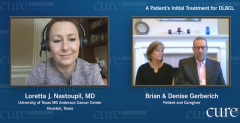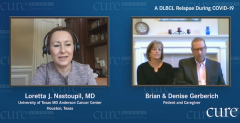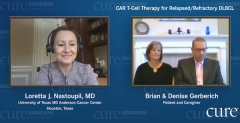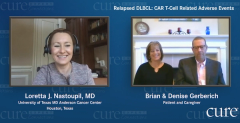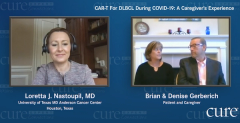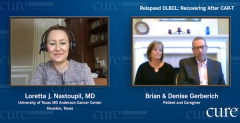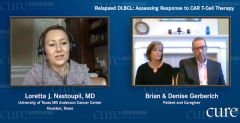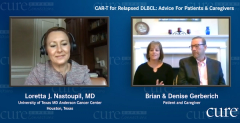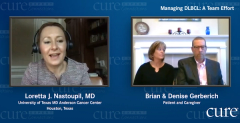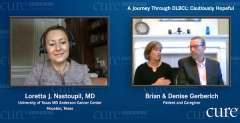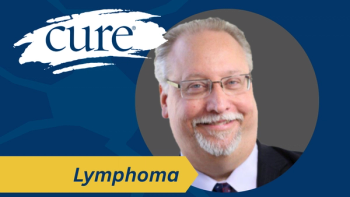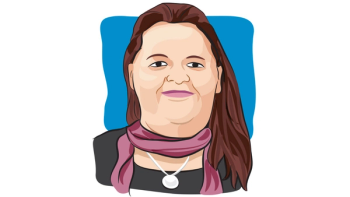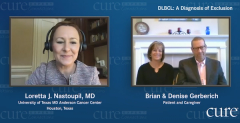
A DLBCL Relapse During COVID-19
Episodes in this series

Loretta J. Nastoupil, MD: Brian, walk us through, you’re finally feeling close to being back to normal, trying to resume a normal life after undergoing treatment and being a cancer patient for one to two years. What was it like when there was some concern about the lymphoma being back?
Brian Gerberich: It was a routine follow-up PET [positron emission tomography] scan with my primary care oncologist, and he called and said, “I don’t think it’s a big deal, but there’s a spot on your kidney and near your spine. But don’t worry, we’ll get it figured out.” Again, it was another difficult biopsy. It was in a hard-to-reach place, and so it was probably one of the harder biopsies that I went through.
But they finally got the sample they needed and again, the same situation as before where they had a really difficult time coming up with exactly what type of lymphoma it was. And so again, it was at least a month waiting for the pathology report to come back. I think it had gone several different places, and they finally came up with a diagnosis. So yes, it was very disheartening to get that again. But one day at a time, one step at a time, and we’ll get through it. That was the attitude.
Loretta J. Nastoupil, MD: You’ve had more biopsies than the average person, and I think that speaks to the fact that there’s been questions along the way as to what lymphoma we were dealing with, whether it was follicular or large cell, or a component of both. Some patients don’t go through that many diagnoses. But I think your case illustrates how important that information is and how challenging it can be for pathologists to finally give us an answer.
What happened after that? It seems like there was a little bit of a lapse in time.
Brian Gerberich: We felt like we fell through the cracks, and then COVID-19 [coronavirus disease 2019] hit. So we had to fight, be our own advocate with our local oncologist. It was a crazy time. We finally got firm that we needed to do something. And I had never gotten a second opinion on any of this, and so I had asked my primary oncologist if he would recommend somebody, and he said, “Absolutely. Dr Nastoupil is who you need to see.” That’s how we got down to MD Anderson.
Loretta J. Nastoupil, MD: To give people a glimpse of how challenging it can be and how important it is to advocate, your biopsy was late January. You and I didn’t meet until about April or May of this year. And again, recognizing with COVID-19 it’s been a unique situation, but I suspect there are a lot of folks just like you out there sitting around with bad news and trying to figure out what to do with that information, and hurdles and obstacles along the way as a result of a new world.
Transcript Edited for Clarity

